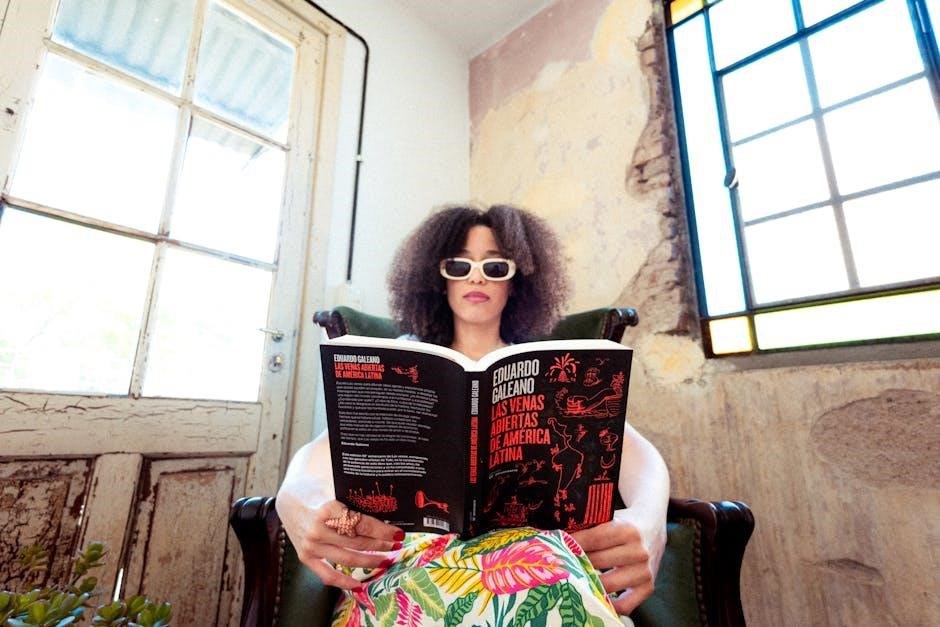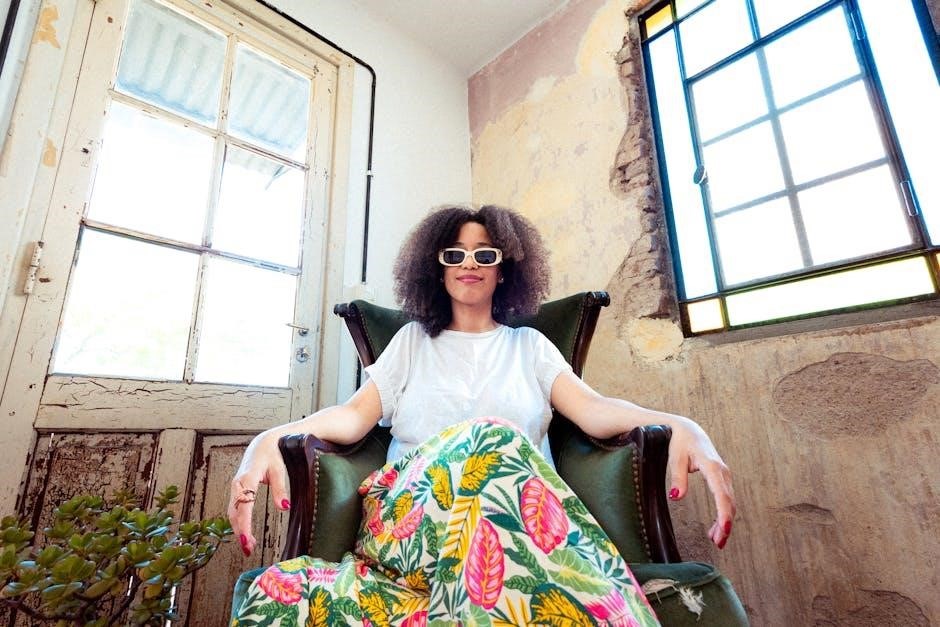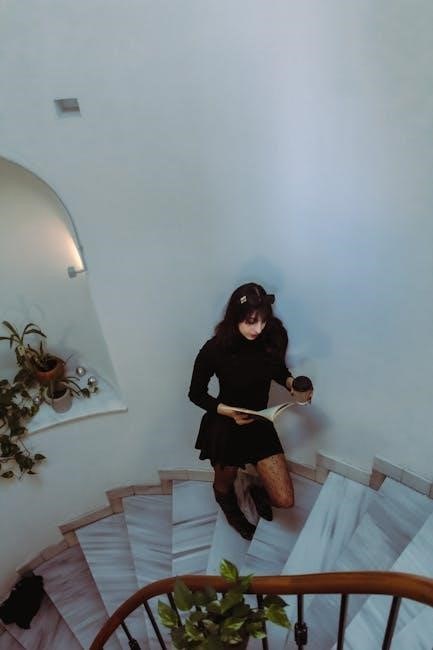book female hip hop artists pdf
Female hip hop artists‚ predominantly Black women‚ have profoundly impacted music and culture‚ navigating industry sexism while achieving significant success and influence.
Numerous studies‚ including analyses of R&B/Hip Hop albums‚ highlight their crucial role‚ with resources like PDFs documenting their contributions.
From pioneers to contemporary stars‚ their lyrical prowess and innovative artistry continue to redefine the genre and empower audiences globally.
Historical Context of Hip Hop
Hip hop emerged in the 1970s within the Bronx‚ New York‚ as a cultural movement encompassing DJing‚ MCing‚ breakdancing‚ and graffiti art – a direct response to socio-economic hardships and a lack of opportunities. Initially‚ the genre was largely male-dominated‚ yet women were present from the very beginning‚ contributing significantly to its development.
Early female artists faced considerable challenges gaining recognition‚ often overlooked in historical narratives. However‚ their contributions were vital in shaping the sound and lyrical content of early hip hop. Resources like academic studies and documented albums (often available as PDFs) are now shedding light on these often-forgotten pioneers.
The evolution of hip hop saw a gradual increase in female representation‚ though systemic sexism remained a persistent obstacle. Understanding this historical context is crucial for appreciating the resilience and artistry of female hip hop artists.
The Rise of Women in a Male-Dominated Genre
The ascent of women in hip hop was a gradual process‚ marked by persistent challenges stemming from deeply ingrained sexism within the music industry and broader societal norms. Early female rappers often faced double standards regarding lyrical content‚ image‚ and media representation.
Despite these obstacles‚ artists like Roxanne Shanté and the pioneering groups Salt-N-Pepa began to break barriers‚ achieving commercial success and paving the way for future generations. Accessing resources like documented album collections (available in PDF format) reveals the strategic navigation of these artists within a restrictive landscape.
Their resilience and artistic innovation challenged the status quo‚ slowly expanding space for female voices and perspectives within the genre.

Early Pioneers (1980s ‒ 1990s)
This era saw groundbreaking artists like Queen Latifah‚ Salt-N-Pepa‚ MC Lyte‚ and Roxanne Shanté emerge‚ documented in numerous publications and PDF resources.
Queen Latifah: A Multifaceted Star
Queen Latifah stands as a monumental figure‚ transcending the boundaries of hip hop to become a celebrated actress and entrepreneur. Emerging in the late 1980s‚ she delivered socially conscious lyrics and challenged gender norms within the male-dominated genre.
Her debut album‚ All Hail the Queen (1989)‚ established her lyrical prowess and commitment to female empowerment. Beyond music‚ Latifah successfully transitioned to acting‚ earning critical acclaim for roles in films like Chicago and Hairspray.
Numerous books and PDF resources document her career‚ highlighting her impact as a role model and a pioneer for women in entertainment. She embodies versatility and continues to inspire generations of artists.
Salt-N-Pepa: Breaking Barriers and Charting Success
Salt-N-Pepa revolutionized the music landscape‚ becoming one of the first all-female rap groups to achieve mainstream success. Their energetic performances‚ bold fashion‚ and sexually liberated lyrics challenged societal norms and paved the way for future generations of female artists.
Hits like “Push It” and “Shoop” dominated the charts‚ demonstrating their crossover appeal and solidifying their place in hip hop history. They fearlessly addressed female sexuality and empowerment‚ topics often avoided in the genre.
Scholarly articles and books‚ often available as PDFs‚ analyze their cultural impact and musical innovations. Salt-N-Pepa’s legacy continues to inspire‚ proving their enduring influence on music and popular culture.
MC Lyte: Lyrical Prowess and Independent Spirit
MC Lyte stands as a cornerstone of hip hop‚ renowned for her exceptional lyrical skills and unwavering independence. Emerging in the late 1980s‚ she distinguished herself with complex rhyme schemes‚ insightful storytelling‚ and a refusal to conform to industry expectations.
Unlike many contemporaries‚ Lyte maintained creative control over her music‚ establishing her own label‚ First Class‚ and demonstrating a strong entrepreneurial spirit. Her albums tackled social issues and personal experiences with honesty and intelligence.
Academic studies‚ often compiled in book format and accessible as PDFs‚ explore her contributions to the genre and her impact on female representation in hip hop. MC Lyte remains a respected figure and a lyrical icon.
The Impact of Roxanne Shanté
Roxanne Shanté burst onto the scene in the mid-1980s with a fierce response to UTFO’s “Roxanne‚ Roxanne‚” igniting a pivotal “Roxanne Wars” battle rap phenomenon. Her quick wit and sharp lyrical delivery established her as a formidable force in a male-dominated landscape.
Shanté’s impact extends beyond the battle rap circuit; she demonstrated a unique ability to craft compelling narratives and challenge societal norms. Her story‚ alongside others‚ is increasingly documented in scholarly works and biographical resources.
Numerous books and downloadable PDFs analyze her pioneering role‚ highlighting her influence on subsequent generations of female rappers and her contribution to the evolution of hip hop’s lyrical complexity.
The Golden Era and Beyond (1990s ‒ 2000s)
This era saw Lil’ Kim and Foxy Brown redefine female sexuality in rap‚ while Lauryn Hill’s Miseducation became a landmark album‚ detailed in numerous publications.
Lil’ Kim: Redefining Female Sexuality in Rap
Lil’ Kim’s 1996 debut album‚ Hard Core‚ irrevocably altered the landscape of female representation in hip hop‚ boldly embracing and owning her sexuality in a way previously unseen.
Her explicit lyrics and provocative imagery challenged societal norms and sparked considerable controversy‚ yet simultaneously empowered a generation of women to express themselves freely.
Kim’s influence extended beyond lyrical content; her fashion choices and overall persona became iconic‚ influencing trends and challenging conventional beauty standards.
Scholarly analyses‚ often found within dedicated publications and PDFs documenting female hip hop artists‚ explore the complexities of her impact‚ acknowledging both the criticisms and the undeniable cultural shift she instigated.
She paved the way for future artists to explore themes of female desire and agency without apology‚ solidifying her status as a pivotal figure in the genre’s history.
Foxy Brown: Style and Substance
Foxy Brown emerged as a prominent figure in the mid-1990s‚ captivating audiences with a unique blend of lyrical skill and undeniable style. Her debut album‚ Ill Na Na‚ showcased a sophisticated flow and mature themes‚ distinguishing her from contemporaries.
Beyond her musical talent‚ Foxy’s fashion sense became a defining characteristic‚ influencing trends and solidifying her image as a glamorous and confident artist.
She navigated a male-dominated industry with poise and ambition‚ demonstrating a business acumen often overlooked in discussions of female rappers.
Academic resources‚ including books and PDFs dedicated to female hip hop artists‚ analyze her contributions‚ acknowledging her impact on both music and fashion.
Foxy Brown’s legacy extends beyond chart success‚ representing a powerful and independent woman in a challenging cultural landscape.
Missy Elliott: Innovation and Visual Artistry
Missy Elliott revolutionized hip hop with her groundbreaking music videos and innovative production style. She defied genre conventions‚ seamlessly blending rap‚ R&B‚ and funk‚ creating a sound uniquely her own.
Elliott’s visual artistry‚ often collaborating with director Hype Williams‚ pushed boundaries and challenged traditional notions of music video aesthetics. Her work is frequently analyzed in academic texts.
She empowered female creativity within the industry‚ both as an artist and a producer‚ opening doors for others to experiment and express themselves freely.
Resources like books and PDFs focusing on female hip hop artists highlight her influence‚ recognizing her as a visionary and a cultural icon.
Missy Elliott’s impact transcends music‚ solidifying her status as a true innovator and a force to be reckoned with.
Lauryn Hill: The Miseducation and its Legacy
Lauryn Hill’s The Miseducation of Lauryn Hill remains a landmark album‚ critically acclaimed for its lyrical depth‚ soulful production‚ and exploration of themes like love‚ motherhood‚ and Black identity.
The album’s success shattered expectations‚ earning Hill numerous Grammy Awards and solidifying her position as a leading voice in hip hop and R&B. It’s a frequent subject in academic studies.
The Miseducation’s impact extends beyond commercial success‚ influencing a generation of artists and inspiring conversations about representation and authenticity.
Numerous books and PDFs dedicated to female hip hop artists extensively analyze Hill’s work‚ recognizing its cultural and artistic significance.
Her legacy continues to resonate‚ making her a pivotal figure in the history of the genre and a symbol of artistic integrity.

The 2000s: Diversification and New Voices
The 2000s saw a surge in diverse female rappers like Eve‚ Trina‚ and Nicki Minaj‚ documented in books and PDFs analyzing their impact.
Eve: Crossover Appeal and Acting Career
Eve‚ born Stefani Joanne Angelina Germanotta‚ achieved remarkable success in the early 2000s‚ blending hardcore rap with mainstream appeal. Her debut album‚ Let There Be Eve…Ruff Ryders’ First Lady‚ established her as a force‚ and subsequent albums like Scorpion further solidified her position.
Beyond music‚ Eve successfully transitioned into acting‚ most notably starring in the UPN sitcom Eve‚ showcasing her comedic talent and broadening her audience. This crossover success was pivotal‚ demonstrating the multifaceted potential of female hip hop artists.
Numerous publications‚ including potential entries in books and downloadable PDFs dedicated to female hip hop‚ analyze Eve’s strategic career moves and her influence on subsequent generations of artists seeking similar dual paths.
Trina: Southern Rap Queen
Trina‚ born Katrina Laverne Taylor‚ emerged as a dominant figure in Southern hip hop during the 2000s‚ particularly with her debut album Da Baddest Bitch. Her unapologetic lyrics and confident delivery quickly established her as a leading voice in the genre‚ challenging prevailing norms.
Representing Miami’s vibrant music scene‚ Trina’s success helped pave the way for other female artists in the South‚ demonstrating the region’s growing influence within hip hop. She consistently delivered commercially successful albums and singles throughout her career.
Scholarly works and potential chapters within books – or downloadable PDFs – focusing on female hip hop artists often highlight Trina’s impact on regional rap styles and her entrepreneurial spirit.
Nicki Minaj: The Rise of a Super Star
Nicki Minaj‚ born Onika Tanya Maraj-Petty‚ dramatically reshaped the landscape of female hip hop in the late 2000s and 2010s. Her unique flow‚ alter egos‚ and vibrant persona propelled her to superstardom‚ breaking numerous chart records and garnering critical acclaim.
Minaj’s impact extends beyond music; she’s become a cultural icon‚ influencing fashion and inspiring a generation of artists. Her business ventures and outspoken personality have solidified her position as a powerful force in entertainment.
Academic analyses‚ potentially compiled in books or accessible as PDFs‚ frequently examine Minaj’s lyrical complexity and her navigation of gender and sexuality within the hip hop industry.
Contemporary Female Hip Hop (2010s ‒ Present)
Contemporary artists like Cardi B and Megan Thee Stallion dominate charts‚ while resources—including potential books and PDFs—document their impact and evolution.
Cardi B: Cultural Phenomenon and Chart Dominance
Cardi B’s ascent represents a modern hip-hop success story‚ fueled by social media and undeniable talent. She became a cultural phenomenon‚ breaking records and challenging industry norms with hits like “Bodak Yellow.” Her impact extends beyond music‚ influencing fashion and popular culture.
Analyzing Cardi B’s career necessitates understanding the context of contemporary female representation in hip-hop‚ a topic increasingly explored in academic studies and documented in resources like potential books or PDFs focusing on female artists.
Her chart dominance demonstrates a shift in the genre‚ showcasing the commercial viability of female rappers who embrace authenticity and connect with audiences on a personal level. Further research‚ potentially found in dedicated publications‚ could explore her influence.
Megan Thee Stallion: Confidence and Empowerment
Megan Thee Stallion embodies confidence and female empowerment‚ becoming a leading voice for her generation. Her music celebrates sexuality and self-assuredness‚ resonating with a broad audience and challenging traditional gender roles within hip-hop.
Her lyrical content and stage presence project an image of strength and independence‚ inspiring many. Scholarly analysis‚ potentially compiled in books or accessible PDFs dedicated to female hip-hop artists‚ could examine the impact of her messaging.
Megan’s success highlights the growing demand for female artists who unapologetically own their narratives and advocate for self-love. Further research could explore her contribution to the evolving landscape of the genre.
Doja Cat: Genre-Bending and Viral Success
Doja Cat distinguishes herself through genre fluidity‚ seamlessly blending hip-hop with pop‚ R&B‚ and electronic elements. Her innovative approach and captivating visuals have fueled viral success‚ establishing her as a prominent figure in contemporary music.
Her ability to connect with audiences through platforms like TikTok demonstrates a keen understanding of digital culture. Academic studies‚ potentially documented in books or accessible PDFs focusing on female hip-hop artists‚ could analyze her unique marketing strategies.
Doja Cat’s artistry challenges conventional boundaries‚ showcasing the evolving nature of hip-hop and the power of online communities in shaping musical trends.
Saweetie: Independent Hustle and Brand Building
Saweetie embodies the spirit of the independent artist‚ skillfully building her brand through strategic self-promotion and a strong online presence. Her entrepreneurial approach extends beyond music‚ encompassing fashion‚ beauty‚ and lifestyle ventures.
She represents a new generation of hip-hop artists who prioritize ownership and control over their careers. Research exploring female entrepreneurship within the music industry‚ potentially found in academic PDFs or books dedicated to female hip-hop artists‚ could highlight her success.
Saweetie’s dedication to self-branding demonstrates the evolving landscape of the music business and the importance of diversifying revenue streams.

Analyzing Themes in Female Hip Hop Lyrics
Female hip hop lyrics frequently explore themes of sexuality‚ empowerment‚ social justice‚ and the unique experiences of Black women‚ as detailed in scholarly PDFs.
Sexuality and Empowerment
Female rappers have consistently challenged societal norms surrounding female sexuality‚ reclaiming agency and redefining standards within hip hop culture; Artists like Lil’ Kim‚ with her groundbreaking album Hard Core‚ boldly explored themes of female desire and sexual liberation‚ sparking both controversy and celebration.
This reclamation extends beyond mere expression; it’s intrinsically linked to empowerment. Lyrics often address navigating patriarchal structures‚ demanding respect‚ and celebrating self-worth. Academic studies‚ accessible through online archives and PDFs‚ analyze how these lyrical choices contribute to broader conversations about gender and power.

Furthermore‚ the portrayal of sexuality isn’t monolithic. Artists demonstrate diverse perspectives‚ ranging from confident self-assertion to nuanced explorations of vulnerability‚ all contributing to a complex and evolving narrative of female empowerment within the genre.
Social Commentary and Political Activism
Female hip hop artists have long utilized their platforms for potent social commentary and political activism‚ addressing issues often marginalized in mainstream discourse. From Roxanne Shanté’s early battle raps challenging male dominance to Lauryn Hill’s profound reflections on societal ills in The Miseducation‚ their voices have been crucial.
These artists tackle systemic racism‚ economic inequality‚ and gender-based violence‚ offering critical perspectives on the Black experience. Many engage in direct activism‚ using their influence to advocate for social justice causes. Research‚ including academic studies compiled in PDF format‚ demonstrates the genre’s historical role in amplifying marginalized voices.
Contemporary artists continue this tradition‚ fearlessly confronting contemporary issues and inspiring dialogue about change‚ solidifying hip hop’s legacy as a vehicle for social and political awareness.
Experiences of Black Women in Hip Hop
Black women have been foundational to hip hop‚ yet their experiences are often marked by navigating a male-dominated industry rife with sexism and double standards. Despite facing these challenges‚ they’ve consistently innovated and achieved remarkable success‚ shaping the genre’s evolution.
Their lyrical content frequently explores the complexities of Black womanhood – celebrating strength‚ resilience‚ and sexuality while confronting societal pressures and stereotypes; Academic studies‚ often accessible in PDF form‚ analyze these narratives and their cultural impact.
From early pioneers to contemporary stars‚ Black female rappers have created spaces for authentic self-expression‚ fostering community and inspiring generations. Their contributions deserve continued recognition and scholarly attention.

The Challenges Faced by Female Hip Hop Artists
Female artists confront sexism‚ misogyny‚ and double standards within the industry‚ often battling for equal representation and recognition‚ as detailed in relevant PDFs.
Sexism and Misogyny in the Industry
Historically‚ the hip hop landscape has been demonstrably male-dominated‚ fostering a culture where female artists frequently encounter sexism and misogyny. This manifests in various forms‚ from lyrical content demeaning women to unequal opportunities for record deals‚ radio play‚ and media coverage.
Studies‚ often documented in academic PDFs and industry analyses‚ reveal a pattern of double standards; female rappers are often judged more harshly on their appearance and sexuality than their male counterparts.
Early pioneers like Roxanne Shanté faced significant hurdles‚ and even contemporary stars continue to navigate these challenges. The industry’s biases often limit creative control and perpetuate harmful stereotypes‚ hindering the full expression and recognition of female talent.
Double Standards and Media Representation
Media coverage of female hip hop artists often perpetuates damaging double standards‚ focusing disproportionately on their appearance‚ personal lives‚ and sexuality rather than their musical artistry and lyrical content. This contrasts sharply with the treatment of male rappers‚ whose skills and business acumen are typically prioritized.
PDFs detailing media analyses reveal a tendency to sexualize female artists‚ reducing them to objects of desire and undermining their credibility. Lil’ Kim’s “Hard Core” album‚ while groundbreaking‚ faced intense scrutiny regarding its explicit content‚ a standard rarely applied to male artists exploring similar themes.
These skewed representations contribute to a broader industry bias‚ limiting opportunities and reinforcing harmful stereotypes‚ ultimately impacting their careers and legacies.
The Importance of Female Collaboration and Support
Amidst the challenges of a male-dominated industry‚ female collaboration and mutual support have been vital for the advancement of women in hip hop. Building networks and platforms allows artists to circumvent systemic barriers and amplify each other’s voices.

Research documented in various PDFs highlights the power of collective action in challenging sexism and misogyny. Instances of female artists featuring one another on tracks‚ co-writing‚ or forming collectives demonstrate a conscious effort to uplift and empower.

This solidarity fosters a sense of community‚ providing mentorship and creating spaces for creative exchange‚ ultimately strengthening the presence and influence of women within the genre.

Resources for Further Research (PDFs & Databases)
Explore online archives of female hip hop albums and academic studies on gender within the genre‚ often available as downloadable PDFs for in-depth analysis.
Online Archives of Female Hip Hop Albums
Discovering comprehensive collections of female hip hop albums requires navigating various online resources. While a single‚ definitive “book” in PDF format encompassing all artists is elusive‚ several databases and archives offer substantial access.
Discogs is a valuable community-built database with extensive discographies‚ including many female artists’ albums‚ often with detailed release information. AllMusic provides album reviews and artist biographies‚ aiding research.
Internet Archive’s audio archive contains digitized albums and mixtapes‚ though availability varies due to copyright. Searching for specific artists like Queen Latifah‚ Salt-N-Pepa‚ or Lil’ Kim yields results. Academic institutions may also host digitized collections accessible through their libraries. Further exploration reveals scattered PDFs of liner notes and promotional materials.
Academic Studies on Gender and Hip Hop
Scholarly research significantly illuminates the experiences of female hip hop artists. While a single “book” in PDF format compiling all studies doesn’t exist‚ numerous academic databases provide access to relevant publications.
JSTOR and Project MUSE host articles analyzing gender dynamics‚ sexism‚ and empowerment within the genre. Searches using keywords like “female rappers‚” “gender and hip hop‚” and “Black women in music” yield valuable results.
Google Scholar is also a powerful tool for locating theses‚ dissertations‚ and peer-reviewed articles. These studies often contextualize the challenges faced by artists and celebrate their contributions‚ offering critical perspectives beyond mainstream narratives. Many universities offer digital access to these resources.
Documentaries and Interviews with Female Rappers
While a comprehensive “book” in PDF format doesn’t exist‚ numerous documentaries and interviews offer invaluable insights into the lives and careers of female hip hop artists. These resources provide firsthand accounts‚ bypassing scholarly interpretation.
YouTube hosts a wealth of interviews‚ from classic television appearances to contemporary long-form conversations. Documentaries focusing on hip hop history often feature prominent female voices‚ though dedicated films are less common.
BET and VH1 archives contain significant interview footage. Seeking out artist-specific documentaries or biographical features provides deeper understanding. These visual and auditory sources complement academic studies‚ offering a more personal connection to the artists’ journeys.

The Future of Female Hip Hop
Emerging artists continue to push boundaries‚ building on the legacies of pioneers‚ while digital platforms and evolving industry dynamics shape the genre’s trajectory.
Emerging Artists to Watch
The landscape of female hip hop is constantly evolving‚ with a fresh wave of talent poised to make a significant impact. Artists like Ice Spice are rapidly gaining recognition‚ blending drill influences with catchy melodies and a distinctive style‚ demonstrating the genre’s adaptability.
Sexyy Red’s unapologetic lyrics and viral moments showcase a new level of confidence and authenticity resonating with audiences. Moreover‚ Lola Brooke is garnering attention for her lyrical dexterity and raw energy‚ solidifying her position as a rising star.
These artists‚ alongside others‚ are not only expanding the sonic palette of hip hop but also challenging conventional norms and paving the way for future generations‚ ensuring the genre remains vibrant and innovative.
The Continued Evolution of the Genre
Female hip hop’s evolution reflects broader shifts in music and culture‚ marked by increasing genre fluidity and experimentation. Artists are seamlessly blending rap with R&B‚ pop‚ and even electronic elements‚ creating unique sonic landscapes. This diversification is evident in the rise of artists like Doja Cat‚ who effortlessly navigates multiple genres.
The increasing emphasis on visual artistry and social media engagement further shapes the genre’s trajectory‚ with artists utilizing platforms like TikTok to amplify their reach and connect with fans.
Furthermore‚ a growing focus on lyrical depth and social commentary ensures that female hip hop remains a powerful platform for addressing important issues and inspiring change‚ continuing its legacy of innovation and empowerment.